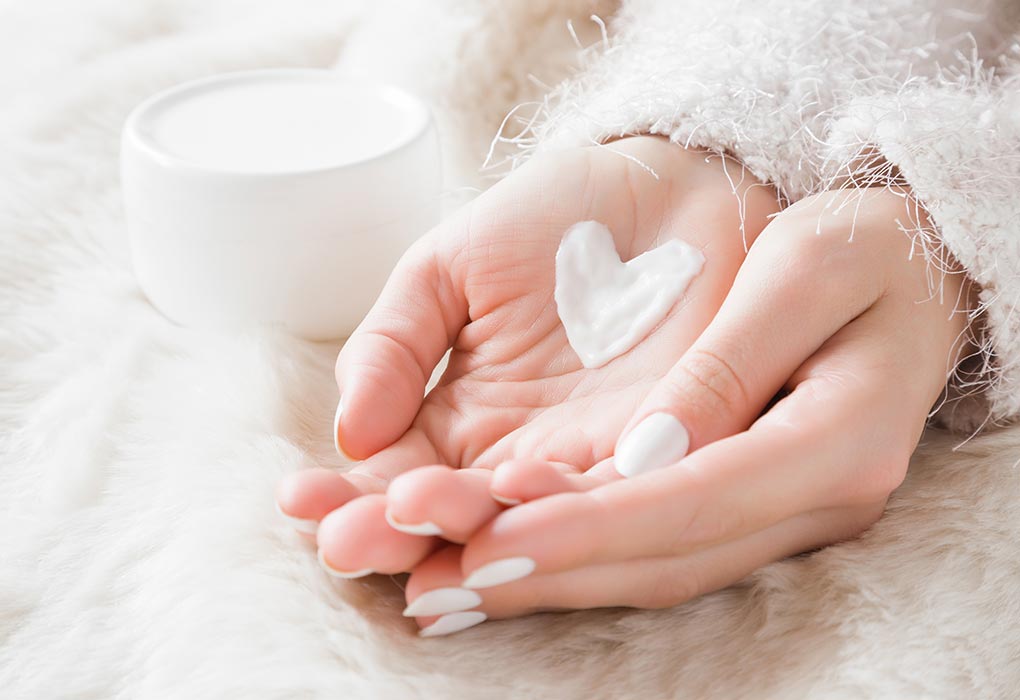For all of winter’s sweeping seasonal highs, there are a few less pleasant side effects to note. Enter the onslaught of dry, itchy skin that’s currently settling in for the winter. While switching to a good moisturizer at the first sign of chill proves helpful, the drier climate and indoor heat may have already taken a toll. Fortunately, there’s still time to get serious about a daily routine to ensure a hydrated, glowing complexion.
Change Up Your Diet
With a direct connection between the gut and skin health, increasing your daily intake of fats may help with dry skin. Experts recommends eating a diet rich in walnuts, olive oil, and avocados (but not to sub them for a proper skin-care routine). While that extra glass of full-bodied red wine may seem like a good idea, Experts takes a conservative approach. “Don’t overdo it with alcohol, caffeine, and coffee,” she explains, as they are diuretics that will cause dehydration. And, she says, “drink tons of water.”
Buff Your Skin
No matter how many serums and creams are applied, dry skin will stay dry without some light exfoliation. “Pick up a gentle scrub,” says Experts, “something with a mild glycolic or lactic acid to get off the dead skin.” The expert suggests swapping a gentle formula for your regular cleanser two to three times a week. For those with raw or severely dry skin, skip the exfoliator and incorporate a wet washcloth instead for a gentler option. And tailor your Retin-A usage to every other day because, while it’s surely the wrinkle-fighting hero product, it is also a strong exfoliant and “may cause extra dryness during the winter.” Now that the skin is buffed, “[serums and] moisturizers can penetrate and really get to work.”
Switch to a Heavy Face Cream
Perhaps one of the most important and commonly overlooked steps in the dry skin game is changing to a seriously hydrating moisturizer. “Look for creams, rather than lotions, that are made with ceramides and hyaluronic acid,” Experts says. Ceramides aid in the prevention of the skin’s barrier, which is “easily broken down during the winter.” For patients with severely chapped faces, pack on a hefty amount of product, they says, morning and night.


